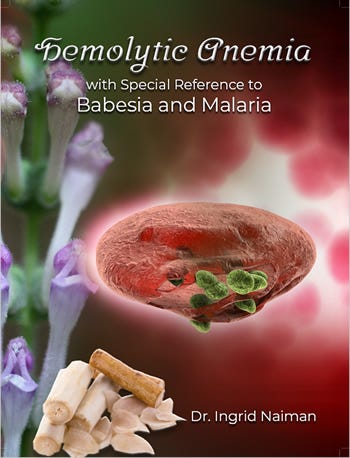Twenty years since the last case of malaria was reported to have been contracted in the U.S., the CDC has stated that five new cases, four in Florida and one in Texas, have been diagnosed. To clarify, there are cases reported every year among people who have traveled abroad, but the five cases creating the latest panic involved people who have not visited any foreign countries.
This news was released yesterday so it would be premature to speculate on the cause, but we can be reasonably certain that many cases are not reported because the crises tend to pass in 6-10 hours. This does not mean that the malaria is gone, merely that the symptoms abate. In short, there have probably been cases here and there that did not become statistics.
Usually, malaria is caused by the bite of a female Anopheles mosquito. They tend to be more active in the early morning and dusk hours and are attracted by heat and odors, such as carbon dioxide, perspiration, and sometimes cosmetics. In areas with mosquitoes, be more cautious during their foraging hours and avoid exposing your skin. Wear light colored clothing with long sleeves, at least during the high risk times of day. Use a repellent if you hear that annoying buzzing sound.
While almost all cases of malaria track to the tropics or immigrants or visitors from those areas, there are occasional infections traced to blood transfusions, organ transplants, and shared needles. There is always a possibility that some cases are misdiagnosed. Perhaps more important is the fact that West Nile Virus is a much greater concern than malaria, at least in U.S.
Tests
Though testing can be performed by reference to examination of the blood, a failure to find infected red blood cells may not actually mean that there are no infected cells. In perusing the literature, one finds statements referring to percentages of infected erythrocytes, but that is the guestimate based on smears relying on peripheral blood. There are several issues here, the chief one being that infected cells tend to adhere to the insides of arteries so samples would almost certainly underestimate the level of infection. The next concern is the testing methodology itself and how trained the laboratory technicians are. In the U.S., malaria is rare and might be easily overlooked, especially since the symptoms mimic many other diseases, such as the common flu, so correct diagnosis is not guaranteed.
Transmission
Technically speaking, malaria is not contagious, but this does not sound like straight fact to me because in places I have visited and lived for extended periods of time, many of them tropical, it was assumed that if a mosquito bit an infected person and then an uninfected one, she could spread the disease so this is regarded as a community issue, not a problem that will disappear when the mosquito dies. In short, all infected individuals need to be treated so that when an mosquito that is not a carrier bites, it does not become an agent of spread. Think of infected blood as bait that might snare another victim. That’s not good karma.
Soap Box
There is no question but that the entire world was impacted by lockdown. As more and more data is studied, lockdown would appear to have been an overzealous attempt to control the spread of a disease that was of little threat to most, especially the young. In my opinion, this is not true of malaria, the number one killer of humanity in history. If there were to be a genuine epidemic of malaria or fear of such, it would make sense to test tourists who have been to areas where malaria is common as well as all immigrants from such places. However, no such testing is required and illegal aliens can, of course, also be carriers. The will to control this might be weak because there is no vaccine on the horizon and the remedies of choice are the very ones ridiculed during lockdown. In short, health policies are both myopic and in drastic need of review.
This said, malaria is quite easy to manage except among the very young and perhaps those with unresolved health challenges, including malnutrition. At the request of clients, I put together a travel kit of remedies, including Artemisia annua which is the primary herb used in natural treatments in much of Africa and Asia. All of my own remedies can be found on Parasite Herbs.
Copyright by Dr. Ingrid Naiman 2023 || All Rights Reserved
For permission to quote, please contact the author. Sharing via e-mail and posting links are welcome so long as the author and source are properly cited. Reprinting is strictly prohibited.
Video Links of Interest:
https://seedseva.com/videos/mosquitoes_malaria.php
Image Credits:
Plasmodium falciparum: CDC
Alms: Alongkorn Sumalee | Dreamstime.com








Thank you so much I have a son traveling in Africa right now . Im guessing it will be effective when he returns anyway I dont have any options . Thanks again .